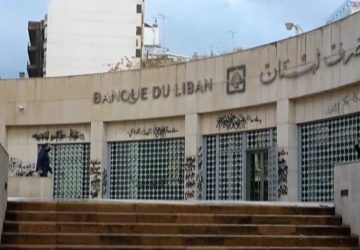Listen to the article
Wassim Mansouri, the Acting Governor of Lebanon’s Central Bank (BDL) has concluded his meetings with correspondent banks in London, returning with reassurances that these institutions will continue to cooperate with Lebanon, regardless of the anticipated decision by the FATF (Financial Action Task Force) on October 24. However, the risk of Lebanon being added to the grey list remains significant—a list that includes countries struggling to address financial crimes, especially money laundering and terrorism financing.
According to Mansouri’s sources, the meetings in London were constructive, direct, and transparent. The correspondent banks affirmed their commitment to maintaining strong ties with Lebanese banks and the Central Bank of Lebanon, driven by their trust in BDL’s adherence to international standards and its implementation of the required measures for financial transparency and compliance. For his part, Mansouri, presented to the banks’ officials a series of actions and steps taken by Lebanon, particularly the Central Bank, aimed at curbing the cash-based economy, monitoring banking transactions, and enhancing compliance mechanisms. He also provided a detailed response to the latest FATF report, which recommended a “negative” reassessment of Lebanon’s classification and its potential move to the grey list.
In fact, Mansouri made a concerted effort to shield the banking sector and the BDL- particularly its external banking operations – from any potential repercussions of a FATF decision to add Lebanon to the grey list. He made it a point in his meetings and in the report he submitted to the FATF to highlight the potential consequences of such a classification.
BDL’s Acting Governor cannot single-handedly alter a decision made by FATF. However, inside information from closed-door meetings in London and Washington have driven him to take all available measures to protect the banking sector and the BDL, especially relationships with correspondent banks, from any potential repercussions.
The latest FATF report commended the efforts of the banking sector and the BDL in implementing the corrective measures required by the group, especially regarding the cash economy and anti-money laundering practices. Official figures show a continued decline in the Lebanese pound money supply, which fell to around 58 trillion pounds in the first week of September. Meanwhile, the Central Bank has increased its foreign currency reserves by nearly $2 billion, bringing the total to approximately $10.4 billion. It has been actively working to manage the money supply in Lebanese pounds by enhancing electronic payment systems and reducing cash transactions in the market. This effort aligns with international standards, for combating money laundering and terrorism financing. Furthermore, the Central Bank has issued Intermediate Circular No. 692, which establishes at least two departments within the Inspection Unit to oversee the central office and bank branches. These departments are responsible for enforcing compliance with anti-money laundering, counter-terrorism financing, and anti-corruption standards.
If Lebanon is added to the grey list in the coming weeks, the crucial next step will be to implement a collaborative action plan involving relevant local stakeholders, with support from the legislative authority and policymakers. The plan’s primary focus should be to address existing gaps and enhance the effectiveness of Lebanon’s anti-money laundering and counter-terrorism financing measures.
Moreover, a comprehensive government strategy is needed to implement the corrective measures required by relevant internal bodies. Addressing FATF’s requests, including judicial reforms, fighting corruption and its agents, and addressing the informal economy, is crucial to prevent Lebanon from being added to the grey list.





